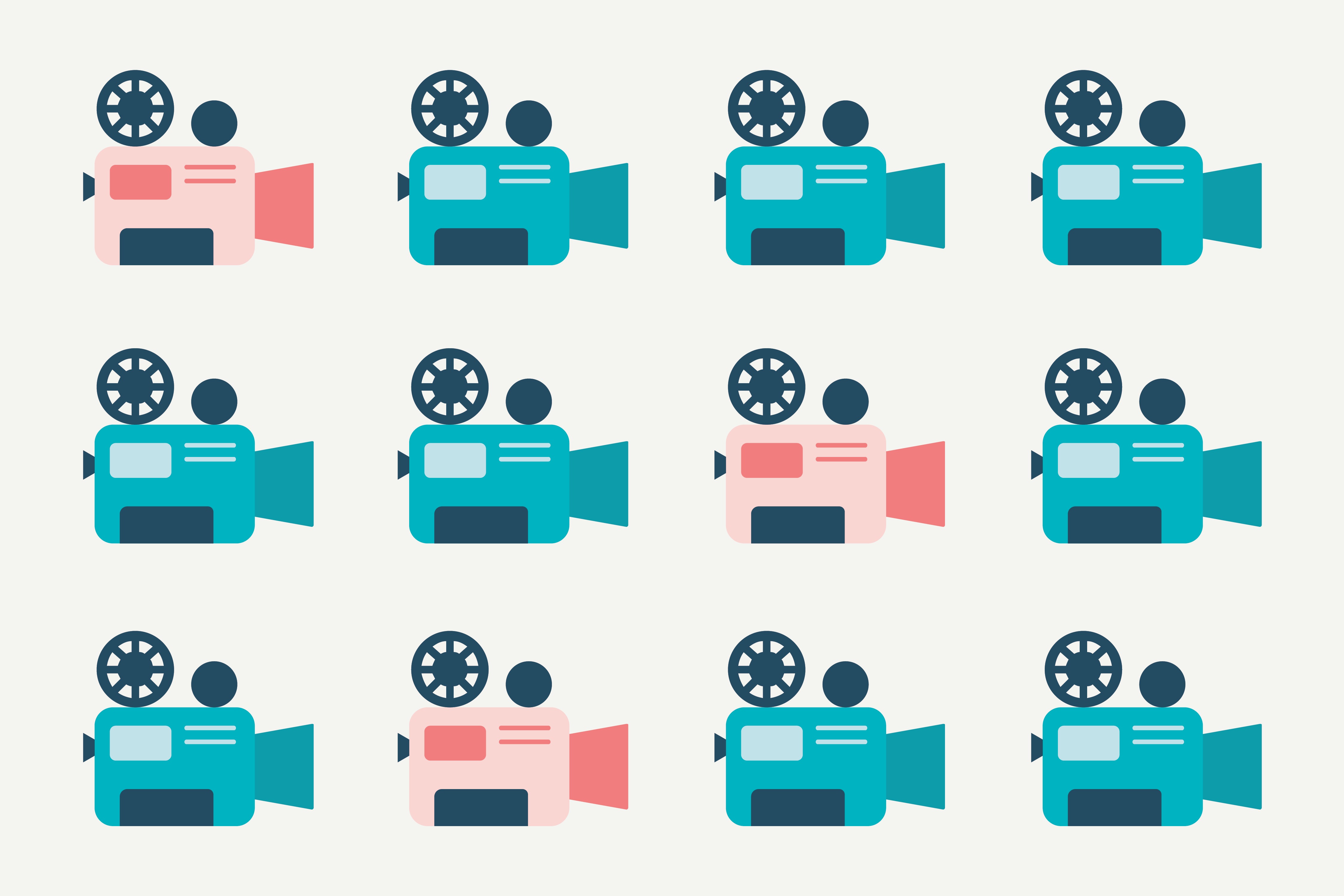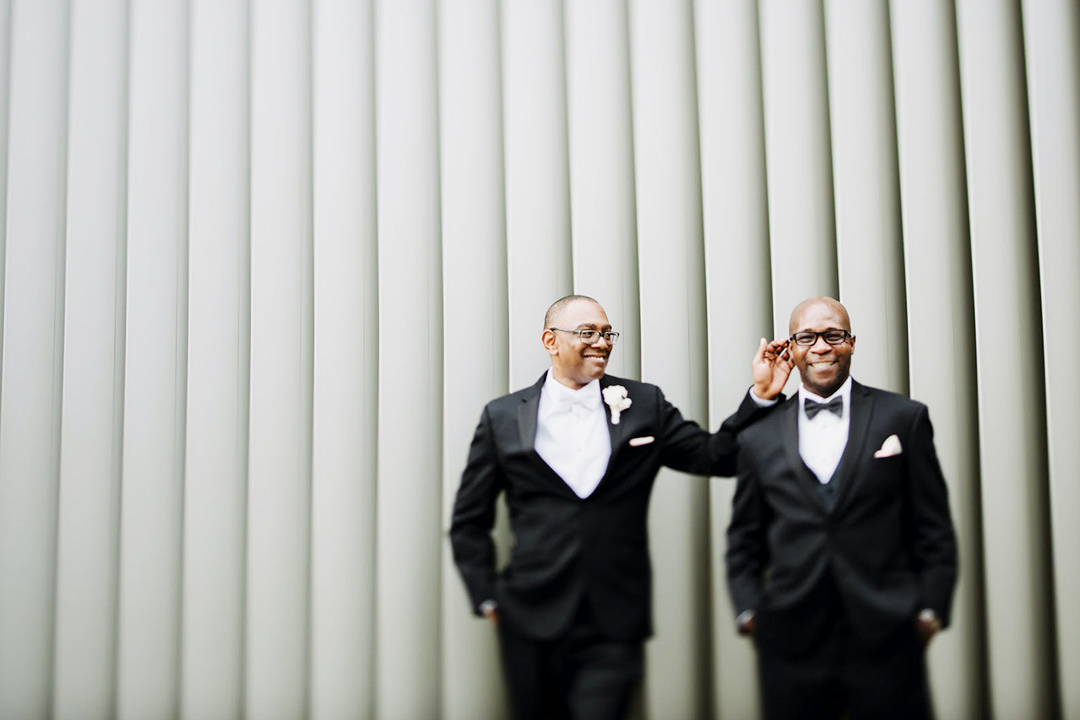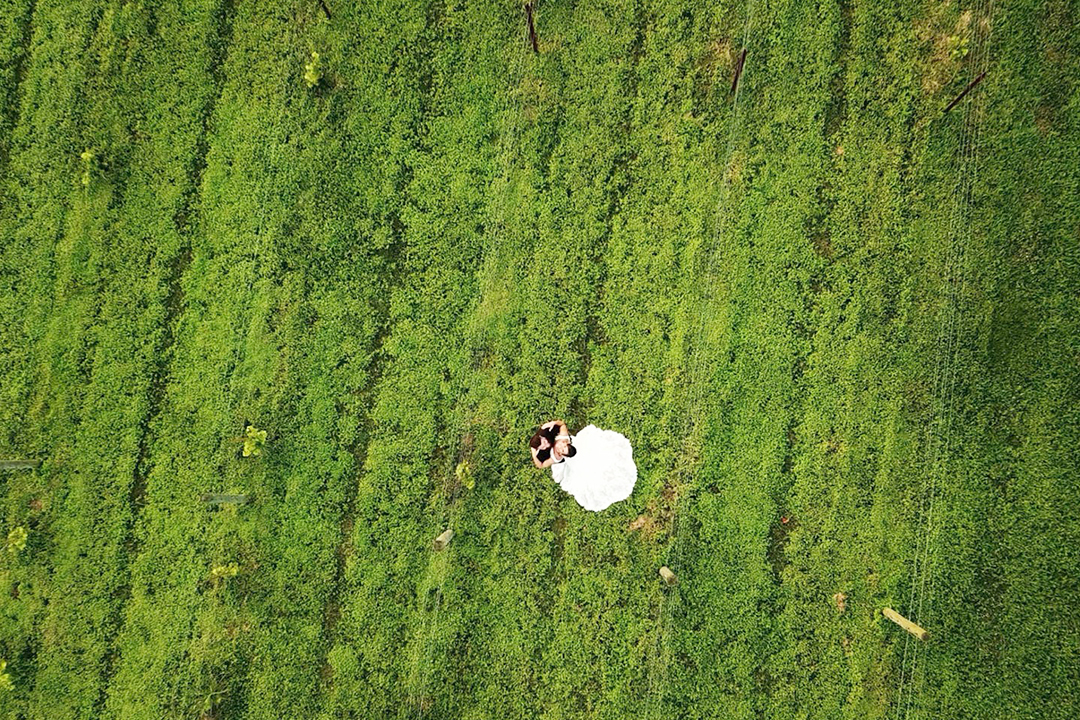Are There Different Types of Wedding Videographers?
There are multiple types of wedding videography to choose from to capture your celebration. Read about the most popular styles and see what's best for you.

Capturing your wedding day on film is a timeless keepsake that you’ll enjoy for years to come. As with any type of recording, there are different types of wedding videography based on the stylistic approach, special effects, and even which camera model is used. Much like a movie, there’s a certain amount of pre-production and editing involved, in addition to the day-of shooting. It’s best to have an idea of how you want your wedding to unfold on video and make the story of your wedding one to look back on and treasure.
To hone in on the type of wedding videography that’ll capture the occasion best, consider the season, destination, and overall aesthetic you want to achieve. Also, you’ll want to decide which parts of the wedding you want to be filmed. Some couples prefer a documentation of the entire day, from pre-ceremony to post-reception, while others want to film the vows and leave the rest to the wedding photographer to document.
There are several choices, and knowing your options will help you decide how your wedding day will unfold. When searching for your own wedding videographer, search for the videography style you want, and then see if it’s your potential videographer’s specialty by watching examples of his or her work. Here are a few of the most popular wedding video styles to help you get excited about the experience and find the videographer that will make your vision come to life.
Documentary
A documentary wedding video relies on the scenery and people to allow the story to unfold organically. By capturing the dialogue of important moments of the day, such as the first look between the bride and groom, and the procession out of the ceremony, a documentary-style video allows for a mix of music and conversation.
There’s limited use of filters (if any are used at all) compared to other types of wedding videography, and it focuses on the natural reactions and unplanned moments as they happen. The result is similar to a higher-quality home video, possibly punctuated with well-wishes and wedding advice from guests, all edited to create a seamless flow.
Cinematic
A wedding videographer with a cinematic background understands how to pull all elements together to create a movie masterpiece. These details include angles, lighting, filters, and transitions like what you would see play out on the big screen. The goal is to capture the true feeling of your wedding, whether that’s told in a linear fashion or jumps back and forth between ceremony and reception.
Special effects, such as slow motion, dream sequences, and voice-overs add to the special movie quality of your wedding video. These are the kind of details you can walk through with your wedding videographer as you express the overall feeling you want from the footage he or she films.

Storytelling
Although similar to cinematic wedding videography, storytelling videographers rely on music and narration to tell the story of your wedding day. It highlights sentimental and humorous moments of the day and follows a standard timeline of having a beginning, middle, and end.
If you’ve always wanted to see how your own fairytale romance would play out on video, the storytelling style is the way to go. It allows you to watch your own celebration unfold, and may also include earlier lookbacks at the time of your engagement, day of your proposal, and dating as a couple, all leading up to the day you say “I do.”
Traditional
A traditional approach to wedding videography is common for vendors who can achieve double duty with videography and photography, thanks to the help of second shooters. It allows important moments to be recorded on film in both ways. It includes behind-the-scenes details, such as the wedding party getting ready before the wedding ceremony or a wedding day brunch before the nuptials begin. It uses the effect of moving images, rather than rolling footage with traditional videography.
Short Film
Between getting ready, the ceremony, and the reception afterward, this can lead up to hours of raw footage edited down to an hour-long video. However, a short film focuses on key moments and pulls them together in a shorter film that’s usually only a few minutes long.
As one of the most popular types of wedding videography, think of it as a highlight reel of your big day with shots from your wedding ceremony, reception, and send-off. A short film allows you to easily share with friends and family through a link or on social media for those who were unable to attend. Some videographers may include this style as part of their services packages when you opt for a longer video.
Each of these types of wedding videography has its own benefits. You can’t go wrong with any of the styles. It comes down to which style best matches how you want the telling of your wedding day to play out on film. Once you know the approximate length of the video you’d like and how many effects you want added, this can get you closer to a decision.
One of the best ways to get acquainted with the differing video styles is to look at previous work. Nearly all wedding videographers will have a portfolio of weddings that they’ve filmed and edited to give you a visual of how yours may unfold.

What to Consider When Choosing a Videographer?
In addition to him or her having experience shooting your preferred type of wedding video style, there are other factors to consider when narrowing down your videographer choices. Make sure you know what questions to ask a wedding videographer to ensure a successful experience. First, consider your videography budget. Depending on services and experience, wedding videography can greatly range in price.
You’ll see that rates go from several hundred dollars to several thousand dollars, depending on the videographer. Cheaper doesn’t always mean better, and if you’re budgeting for this wedding expense, you’ll want it to be well worth it. While inexpensive may be your first inclination, check previous wedding video examples to ensure that you’re receiving the quality you want.
Second, look for credentials, such as his or her length of time in the wedding video industry and if he or she has been recognized by any reputable wedding sources. Your wedding venue may have recommendations for vendors to use. The plus-side of this is that the videographer is familiar with the space and knows the best areas and time of day to get the best footage.
After you’ve secured rates and credentials, considering referrals and online reviews helps in making a decision. Read about what others have to say about the videographer’s work and professionalism.
- Was he or she easy to work with?
- Did he or she show up on time and properly prepared?
- Did he or she deliver on the expected product?
- Was he or she willing to take extra measures to ensure that the couple was satisfied with the final result?
Getting feedback from friends, family members, and couples who have come before you can help narrow down your choices. Once you’ve found two or three videographers that you like, a recommendation from someone you know and trust can move one to the front of the line as your top choice.
Lastly, think about the size of your guest list and location of your wedding when choosing a videographer. This makes a difference in the kind of wedding videography style that’ll be the best fit for the day. If your guest list is less than 50 people, a short film may encompass everything you want and cost you less than a lengthier production. Alternatively, if you’ll be surrounded by hundreds of guests for a multi-day celebration, a cinematic approach may be more suitable.
Since your wedding will be uniquely beautiful, so will your video—regardless of length, filters, and editing. The goal is to have your wedding video do your celebration justice so that you can watch back as many times as you want.
Customizing Your Wedding Video
Even if you’re drawn to a certain videography style, you can always customize your wedding video the way you want it. Include special songs and deliberate moments you want your videographer to film. While he or she may have the experience of who, what, and where to shoot, only you have the insight into what will make your wedding video feel truly your own.
This may also include up-close shots and individual moments with various family members or people in your wedding party. Some couples may prefer the concentration to be on the ceremony, while others want the wedding reception to be the main coverage. When you meet with different wedding videographers, talk through your ideas of how you want the video to play out. He or she will make suggestions and keep the conversation open to ensure that the contract includes exactly what you want.
The professional relationship between the wedding videographer and couple is important because you’ll need to trust and be confident that he or she will uphold the vision you have in mind. Find someone who has passion for their job and is focused on delivering something special for your day.
Vet different videographers until you find the perfect match for your budget, wedding video style, and overall communication level that you prefer. Once the wedding day approaches, the person you select will be in charge of capturing the magic, so choose wisely.
